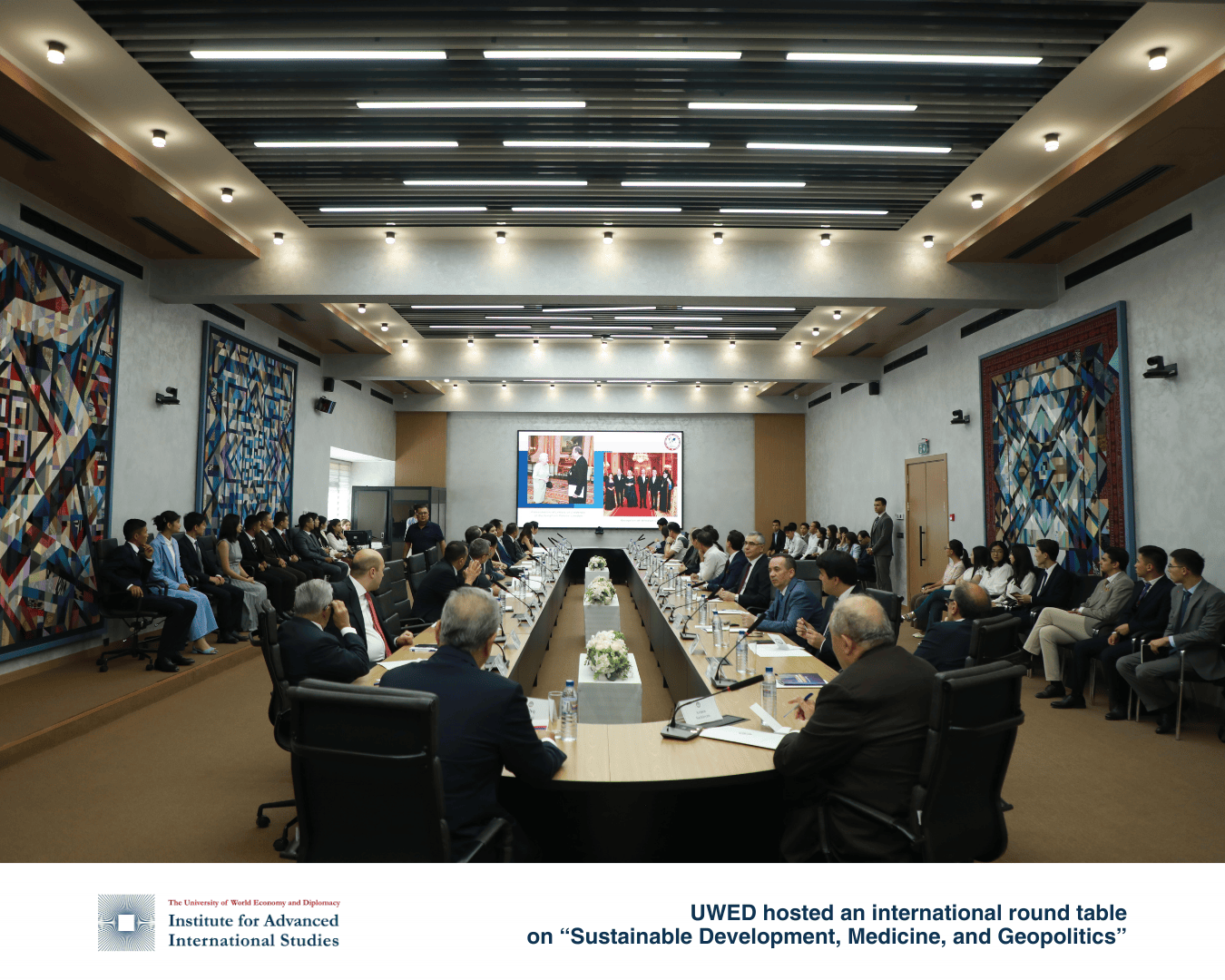
On September 3, the University of World Economy and Diplomacy (UWED) hosted an international round table on “Sustainable Development, Healthcare, Geopolitics”, organized jointly with the Institute for Advanced International Studies (IAIS). The forum became an authoritative platform for meaningful dialogue between representatives of political, academic, and expert circles, bringing together specialists from various countries and fields of activity.
The First Deputy Chairman of the Senate of the Oliy Majlis of the Republic of Uzbekistan, Rector of UWED Sodyq Safoev, emphasized the growing need for a comprehensive interdisciplinary approach to the analysis of global processes, in which the issues of sustainable development, healthcare, and geopolitical dynamics are closely intertwined and require the collective efforts of the international expert community.
Prominent international figures took part in the discussion: Armen Sarkisyan, fourth President of the Republic of Armenia, and Professor Kishore Mahbubani, Ambassador Extraordinary and Plenipotentiary, Chairman of the International Medical Council of the National University of Singapore. RKLinks CEO Raja Kamol was also among the speakers. In addition, representatives of government agencies and public administration, international organizations, the diplomatic corps accredited in Uzbekistan, as well as leading scientists and experts from the domestic and foreign scientific community joined the discussion.
The roundtable participants considered a wide range of issues related to contemporary global changes. Particular attention was paid to the growing role of Asia in global processes, changes in the balance of power in the international arena, and challenges to the existing world order. The discussion focused on competition between economic and technological models, differences in value systems, and the prospects for constructive interaction between East and West in the context of a new historical era.
The results of the round table contributed to strengthening interdisciplinary dialogue and made it possible to develop constructive proposals for finding solutions to the most complex problems at the intersection of economics, politics, and healthcare.